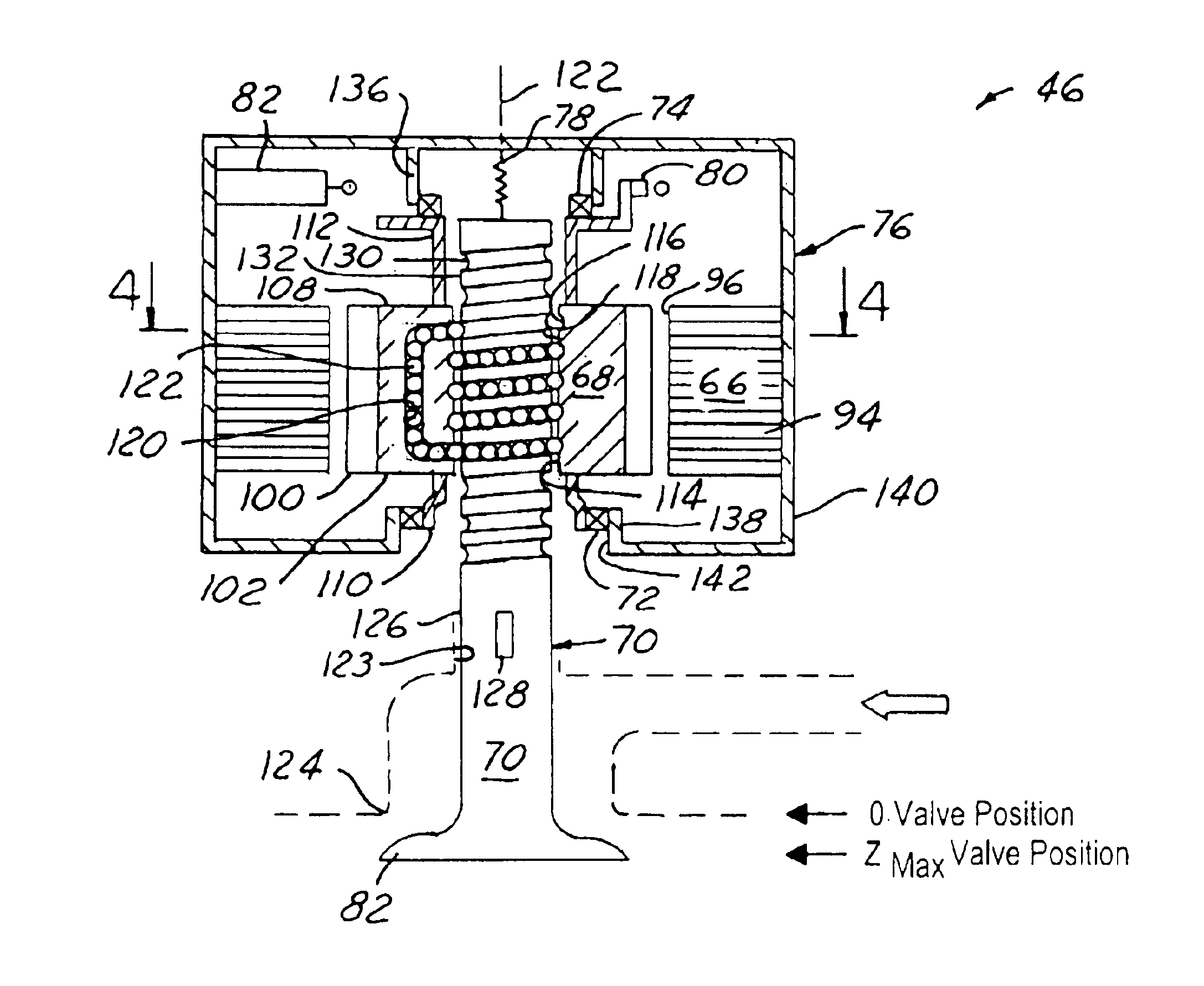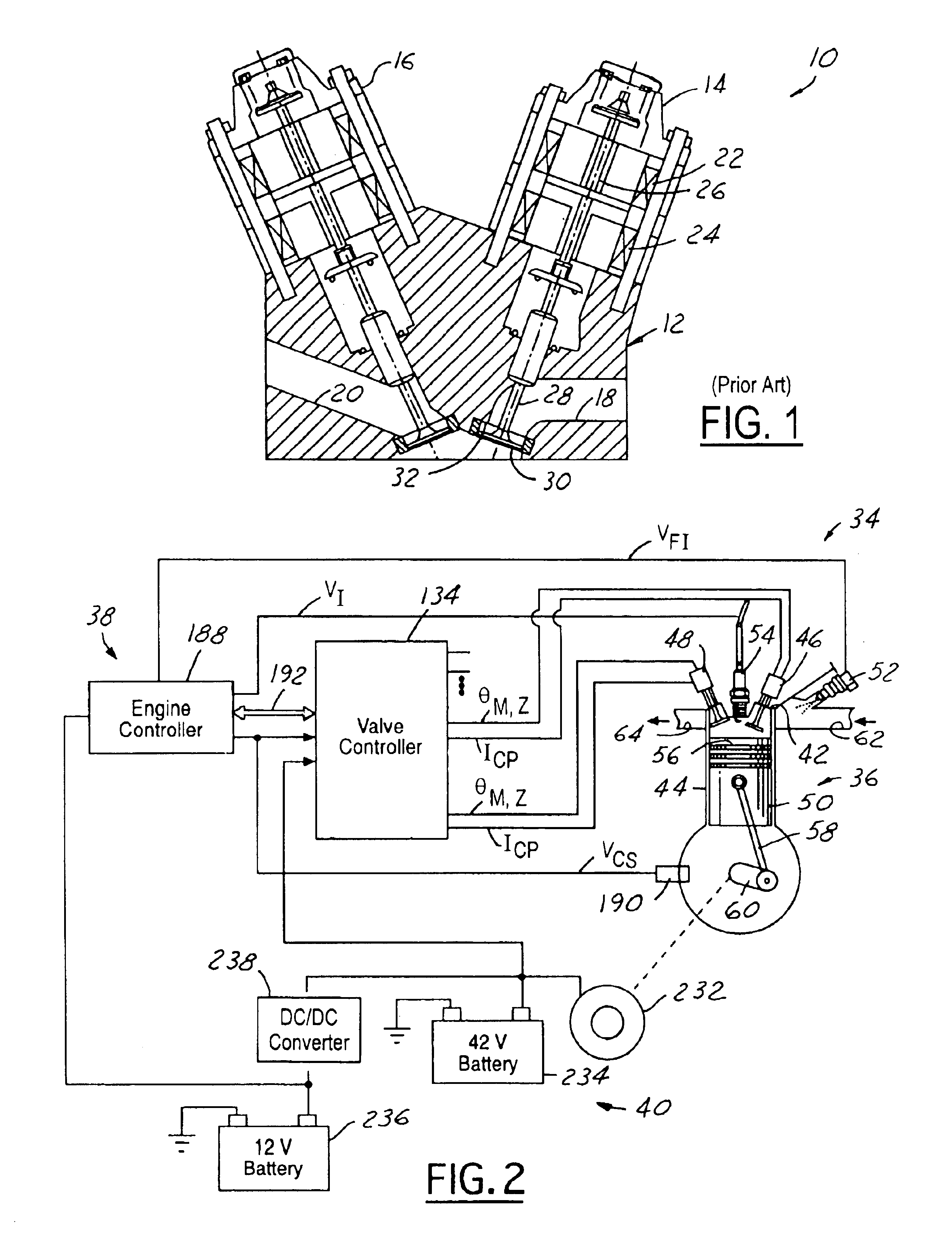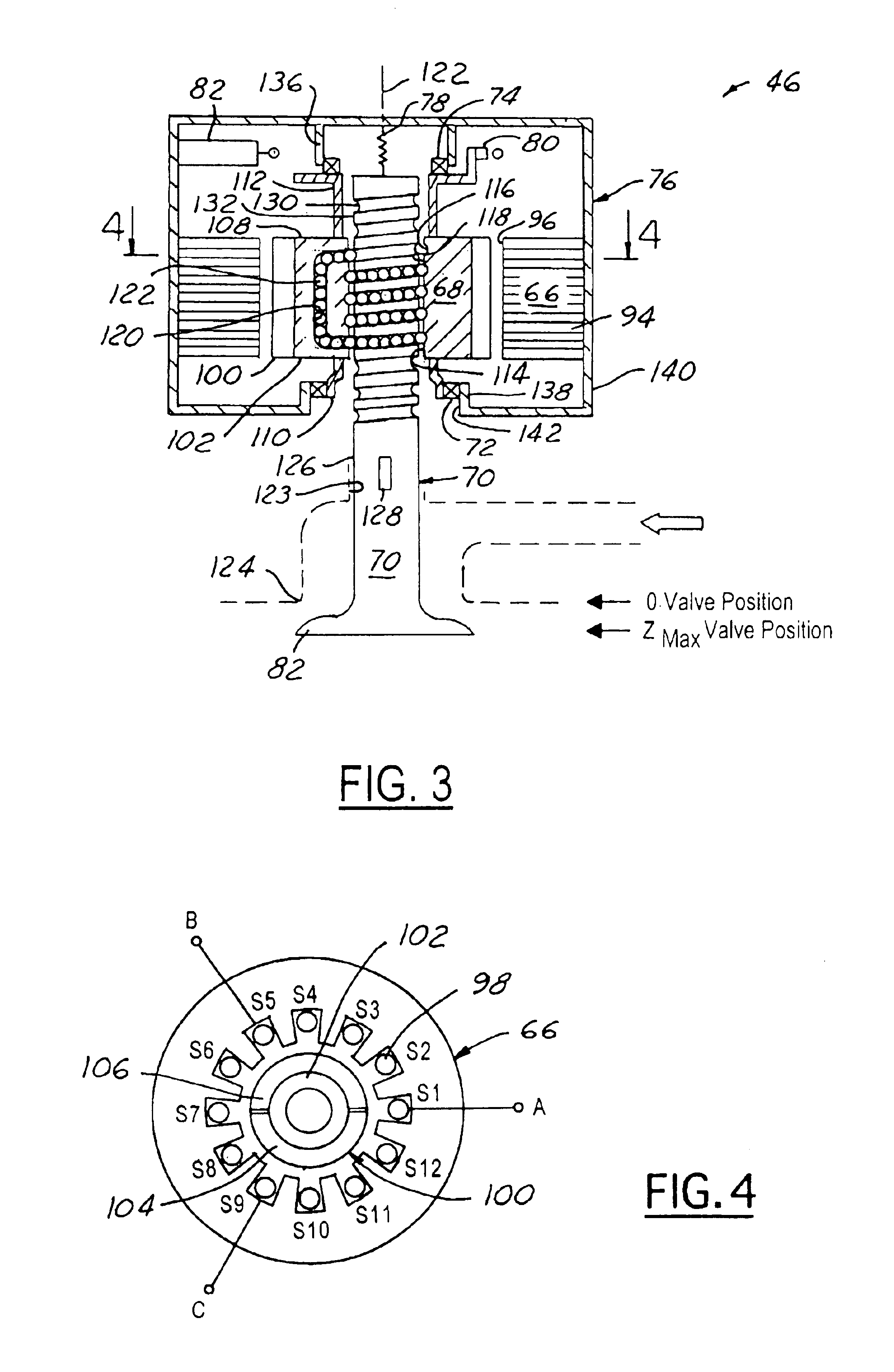Electromechanical valve assembly for an internal combustion engine
a technology of electromechanical valves and internal combustion engines, applied in the direction of non-mechanical valves, machines/engines, operating means/releasing devices of valves, etc., can solve the problems of inability to effectively increase fuel efficiency and reduce emissions in engines, the electromechanical valve energy requirement is reduced, and the fuel efficiency is increased.
- Summary
- Abstract
- Description
- Claims
- Application Information
AI Technical Summary
Benefits of technology
Problems solved by technology
Method used
Image
Examples
Embodiment Construction
Referring now to the drawings wherein like reference numerals are used to identify identical components in the various views, FIG. 2 illustrates an automotive vehicle 34 having an engine 36, an engine control system 38, and a power distribution system 40.
The engine 36 comprises an internal combustion engine. The engine 36 includes an engine head 42, an engine block 44, electromechanical valve assemblies 46, 48, a cylinder 50, a fuel injector 52, a spark plug 54, a piston 56, a connecting rod 58, and a crankshaft 60. Even though one cylinder 50 is shown in FIG. 2 for purposes of clarity, the engine 36 includes a plurality of cylinders 50, each cylinder 50 having valve assemblies 46, 48, fuel injector 52, spark plug 54, piston 56, and connecting rod 58.
The engine head 42 is conventional in the art and defines an intake line 62 and a exhaust line 64. The engine head 42 is mounted to the engine block 44 and is configured to hold the valve assemblies 46, 48, the spark plug 54, and the fu...
PUM
 Login to View More
Login to View More Abstract
Description
Claims
Application Information
 Login to View More
Login to View More - R&D
- Intellectual Property
- Life Sciences
- Materials
- Tech Scout
- Unparalleled Data Quality
- Higher Quality Content
- 60% Fewer Hallucinations
Browse by: Latest US Patents, China's latest patents, Technical Efficacy Thesaurus, Application Domain, Technology Topic, Popular Technical Reports.
© 2025 PatSnap. All rights reserved.Legal|Privacy policy|Modern Slavery Act Transparency Statement|Sitemap|About US| Contact US: help@patsnap.com



